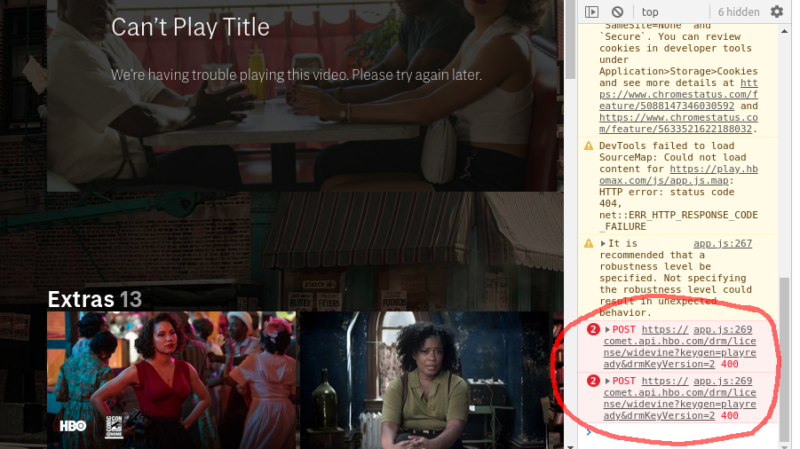
You may be able to stream HBO Max on Linux platforms, though it is not officially supported for HBO Max at this time. For supported browsers and devices, see HBO Max supported devices or visit the HBO Max Help Center for additional support.
HBO Max representatives did not respond to a request for comment on whether the service had enabled the VMP requirement under Widevine, which is what broke CBS All Access for Linux users in January of this year.
We never did hear anything more from HBO Max, but as reader etarts pointed out to us this week, someone eventually fixed the issue with Widevine. The service is once again handing out licenses to Linux subscribers whose browsers support Widevine encryption. The full, proprietary Google Chrome browser supports Widevine (which is a Google protocol) by default; it can also be enabled relatively easily on Chromium and on Mozilla Firefox.
It's worth noting that, although access is restored for Linux users now—and we're grateful to whoever finally did that—Linux PCs are still not on HBO Max's list of supported devices.
Entertainment - Latest - Google News
November 04, 2020 at 03:59AM
https://ift.tt/328piTs
HBO Max quietly restored service to Linux users - Ars Technica
Entertainment - Latest - Google News
https://ift.tt/2RiDqlG
Bagikan Berita Ini














0 Response to "HBO Max quietly restored service to Linux users - Ars Technica"
Post a Comment